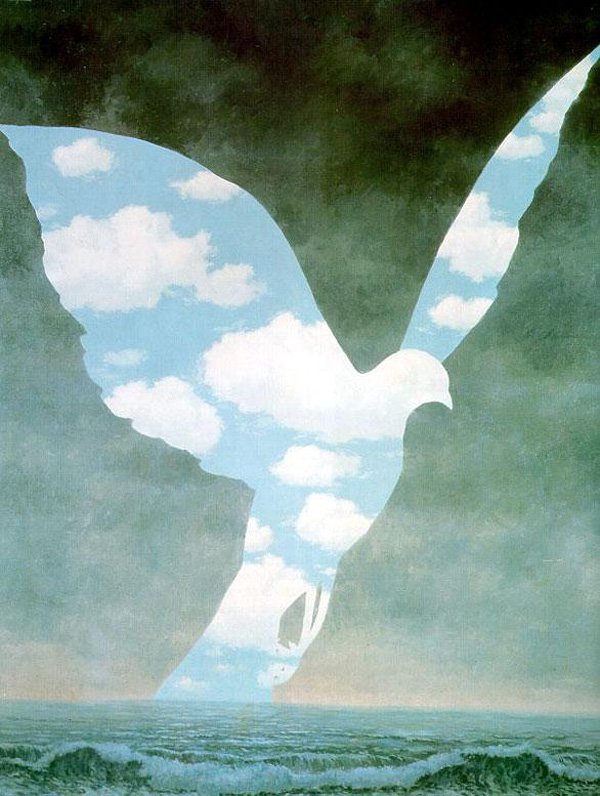
– –




Do I listen ?
“The world belongs to those who do not feel. The essential condition for being a practical man is the lack of sensitivity. The main quality in the practice of life is that quality that leads to action, that is, the will. Now there are two things that hinder action – sensibility and analytical thinking, which is nothing more than thought with sensitivity. All action is by its nature the projection of the personality on the external world, and since the external world is in great and main part composed by human beings, it follows that this projection of the personality is essentially the cross in the other path, to hinder, to hurt and to crush the others, according to our way of acting.
In order to act, therefore, it is necessary that we do not easily appear to other people’s personalities, their pains and joys. Those who sympathize stop. The man of action regards the external world as composed exclusively of inert matter – or inert in itself, like a stone upon which it passes or moves away from the path; or inert as a human being who, because he could not resist it, whether was it a man or a stone, for as to the stone, or he moved away or passed over.
The ultimate example of the practical man, because he combines the extreme concentration of action with its extreme importance, is that of the strategist. All life is war, and the battle is therefore the synthesis of life. Now the strategist is a man who plays with lives like the chess player with game pieces.What would be of the strategist if he thought that each move of his game puts night in a thousand homes and hurt in three thousand hearts? What would the world be like if we were human? If the man really felt, there would be no civilization. Art serves as an escape from the sensibility that the action had to forget. Art is the Cinderella, who stayed at home because it had to be.
Every man of action is essentially lively and optimistic because whoever does not feel is happy. A man of action is known for never being in a bad mood. Whoever works, although in a bad mood, is an action subsidiary; may be in life, in the great generality of life, a bookkeeper, as I am in her peculiarity. What he can not be is a ruler of things or of men. To regency belongs the insensibility. It rules who is cheerful because to be sad you have to feel.
The boss Vasques today made a business in which he ruined a sick individual and his family. While doing the business he completely forgot that this individual existed, except as a commercial counterpart. Once the business was done, sensibility came to him. Only then, of course, if it came earlier, the business would never be done. “I feel sorry for him”, he told me. “He will be in misery”. Then, lighting his cigar, he added: “In any case, if he needs anything from me” – to be understood as any alms – “I don’t forget that I owe him a good business and a few dozen pounds.” “
The boss Vasques is not a thug: he is a man of action. Whoever lost the throw in this game, in fact, because the boss Vasques is a generous man, to count on his alms in the future.
Like boss Vasques, are all men of action – industrial and commercial leaders, politicians, men of war, religious and social idealists, great poets and great artists, beautiful women, children who do what they want. Bosses those who does not feel. Whoever thinks only what he needs to win wins. The rest, which is the vague general humanity, amorphous, sensitive, imaginative and fragile, is nothing but the backdrop against which these figures of scene stand out until the puppet play ends, the flat bottom of squares on which the chess pieces are raised until the Great Player keeps them, deluding himself with a double personality, plays, entertaining himself, always against himself.
Bernardo Soares (Fernando Pessoa), In The Book of Disquiet
[OP Translation]

“Only snow
knows the gestures
with which the miracles are woven”
Luís Falcão, In Uma Exigência de Infinito